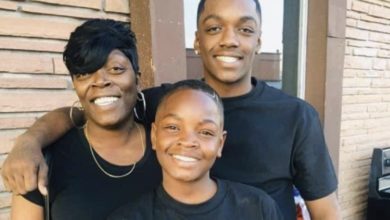Emergency Protest to save Troy Davis life, in Atlanta GA, Saturday, Sept. 20, 2008 6pm at the CNN Center. For more info 423-320-9711
|
Supporters have been fighting for his release ever since he was imprisoned. According to Amnesty International, which has collected over 200,000 signatures demanding clemency for Davis, there was a groundswell of support in the days leading up to his clemency hearing. Over 200 religious leaders have signed the petition, including civil rights leaders Rev. Dr. Joseph E. Lowery and Rev. Raphael G. Warnock of the Ebenezer Baptist Church.
The NAACP, the European Parliament and others have demanded clemency in his case. “It is deeply troubling to me that Georgia might proceed with this execution given the strong claims of innocence in this case,” said South African former anti-apartheid activist Archbishop Desmond Tutu. “It has been repeatedly demonstrated that…the system of capital punishment is fallible, given that it is administered by fallible human beings.”
Fallible indeed, given how many death row inmates have been released in the United States after evidence emerged proving their wrongful convictions. Since 1973, more than 125 people have been released. In 2003 alone, 10 wrongfully convicted defendants were released from death row.
More frightening still is the thought of how many innocent people never make it out. Many have been shown to be innocent only after their execution. The number of wrongful executions where the truth never surfaces at all is anyone’s guess.
A 1999 report from the U.S. General Accounting Office found “a pattern of evidence indicating racial disparities in charging, sentencing, and imposition of the death penalty.” The conclusion was not particularly groundbreaking, and is consistent with many other studies whose findings have confirmed that, holding all other factors constant, the skin colors of the defendant and alleged victim are the most reliable predictors of whether someone will be sentenced to death. From initial charging decisions to plea bargaining to jury sentencing, African Americans are treated more harshly when they are defendants, and their lives are accorded less value when they are the victims.
Troy Davis turned himself in to police in 1989 for, in his own words, “crimes I knew I was innocent of in an effort to seek justice through the court system.” He was convicted and sentenced to death for the murder of off-duty cop Mark Allen MacPhail at a Burger King in Savannah, Ga. There was no physical evidence in the case against him and no weapon was ever found. The case against Davis was built entirely on testimony riddled with inconsistencies.
All but two of the state’s witnesses have recanted their testimony and have stated that they were pressured or coerced by the police to sign statements. One of the two remaining witnesses who has stuck to his story is Sylvester “Red” Coles, who has been implicated as the gunman in signed affidavits by nine individuals.
This country cannot be said to offer equal justice to all when racial disparities blatantly plague the system that imposes the ultimate penalty. The selective application of the death penalty is perhaps the clearest indicator of the state’s active role in perpetuating racism. It amounts to little more than modern-day lynching with the blessing of the government and the courts.
The Board of Pardons and Paroles has the power at any time to stop a scheduled execution, so your continued action is needed today!
To find out more about Troy Anthony Davis and what you can do, click here.







